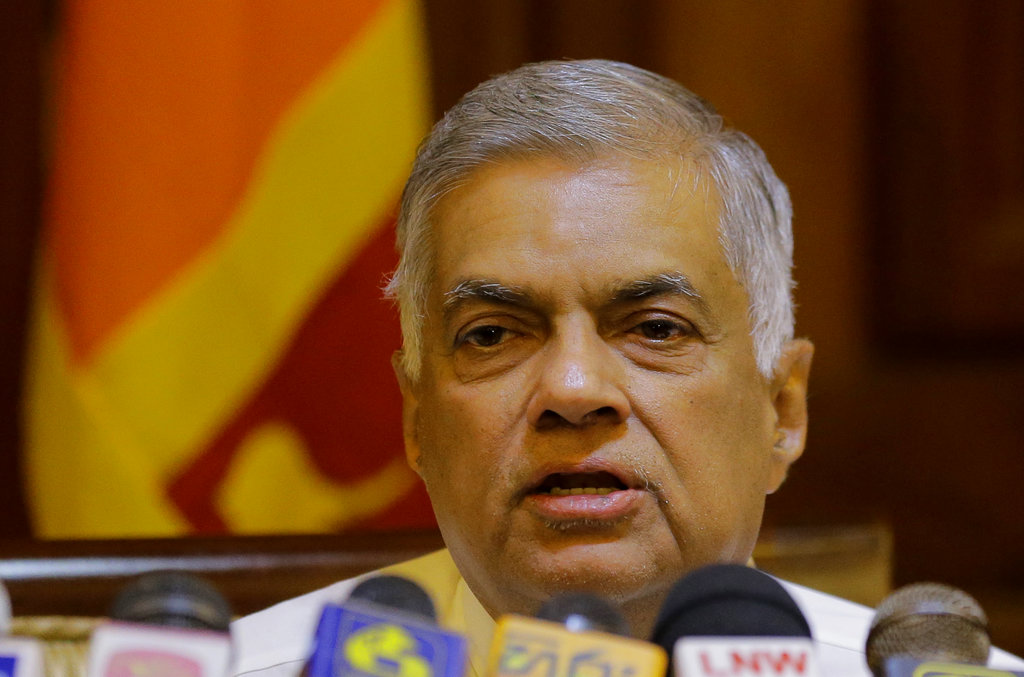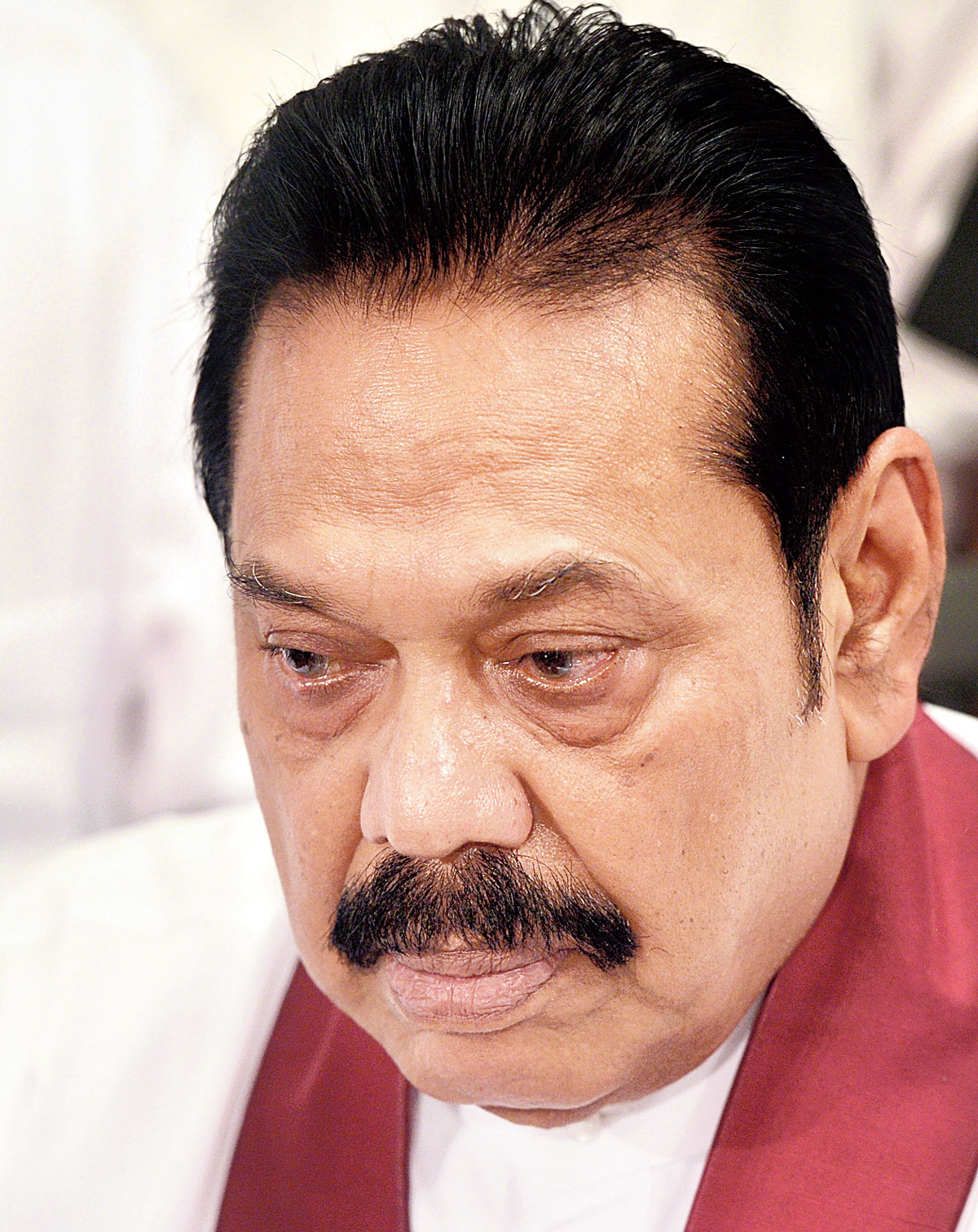A Sri Lankan lawmaker said that disputed Prime Minister Mahinda Rajapaksa will resign on Saturday to end the country's political crisis.
The pro-Rajapaksa lawmaker, Lakshman Yapa Abeywardena, told reporters that Rajapaksa decided in a meeting on Friday with President Maithripala Sirisena to resign to allow the President to appoint a new government.
Sri Lanka has had no functioning government for nearly two weeks and is facing the prospect of being unable to pass a budget for next year.
'Unless the Prime Minister resigns, another Prime Minister cannot be appointed. But the country needs to face situations that it needs to face in January; a country cannot function without a budget,' Abeywardena said. 'Therefore Mr Rajapaksa says that he will make a special statement tomorrow and resign from the position of Prime Minister.'
The decision appears to have been hastened by a Supreme Court decision to extend a lower court's suspension of Rajapaksa and his Cabinet. The top court put off the next hearing until mid-January, when it plans to rule on whether they should hold office after losing two no-confidence votes in Parliament.
The country runs the risk of being unable to use state funds from January 1 if there is no government to approve the budget. It also has a foreign debt repayment of $1 billion due in early January and it is unclear if it can be serviced without a lawful finance minister.
Sri Lanka has been in political crisis since October, when Sirisena abruptly sacked then Prime Minister Ranil Wickremesinghe and replaced him with Rajapaksa.
Rajapaksa is a former strongman President who is considered by some as a war hero for defeating the Tamil Tiger rebels in 2009 after a long civil war. But he lost a 2015 re-election bid amid allegations of wartime atrocities, corruption and nepotism. After his appointment as Prime Minister, he sought to secure a majority in the 225-member Parliament but failed. Sirisena then dissolved Parliament and called new elections, but the Supreme Court struck down that move as unconstitutional.
Sirisena has repeatedly rejected appeals to reappoint Wickremesinghe as Prime Minister, but may now be compelled to do so since Wickremesinghe has the support of 117 lawmakers in Parliament.












